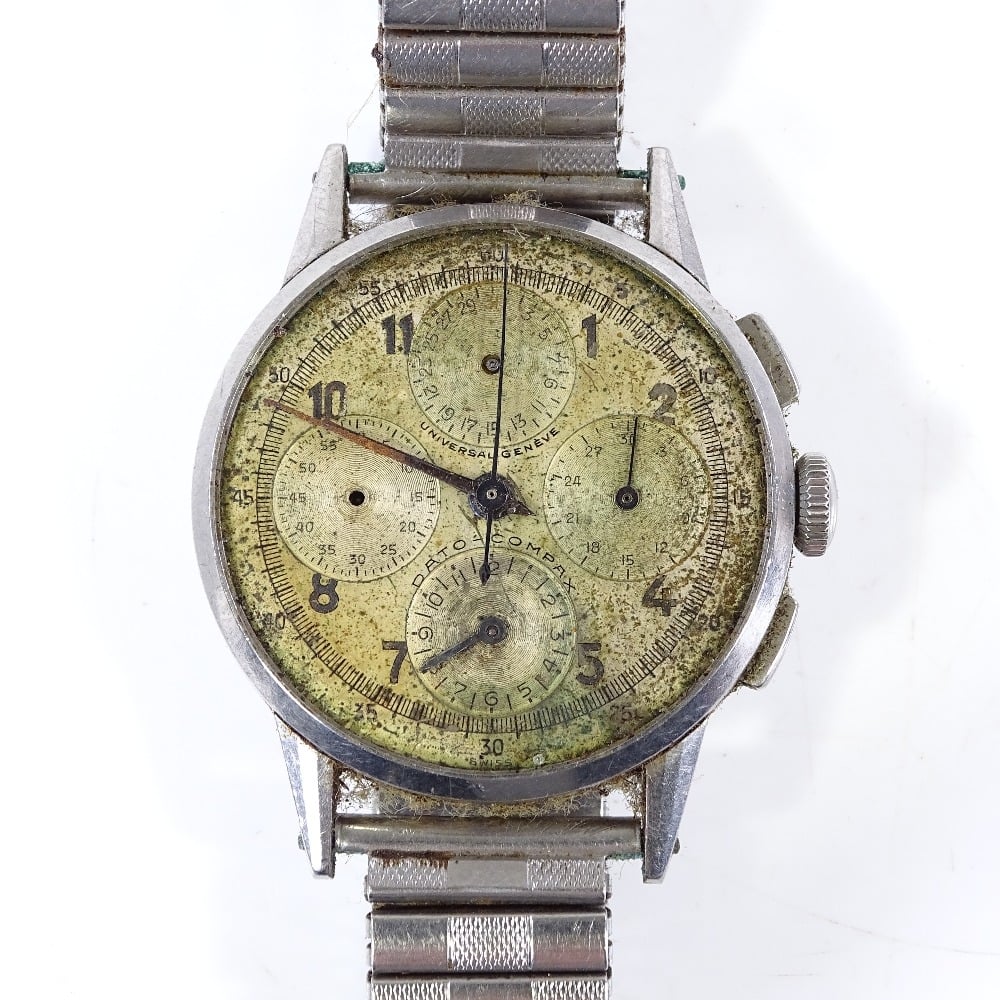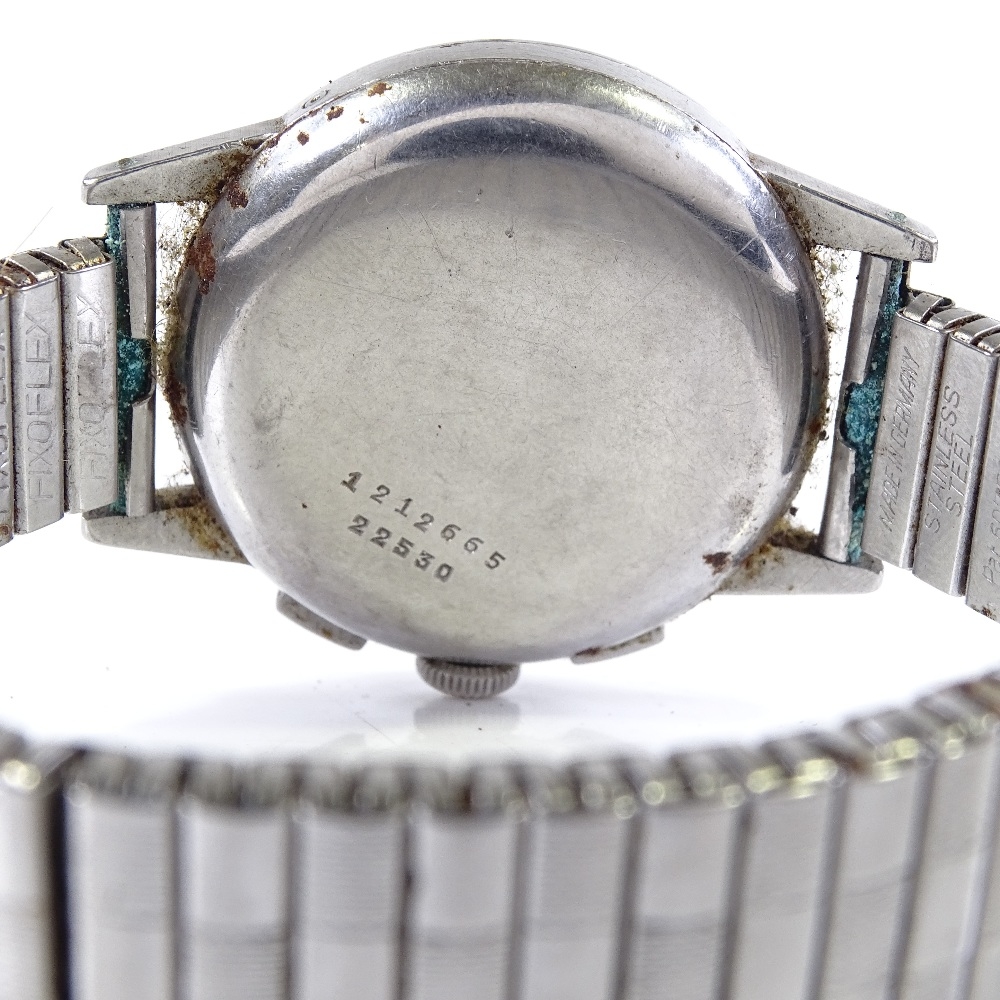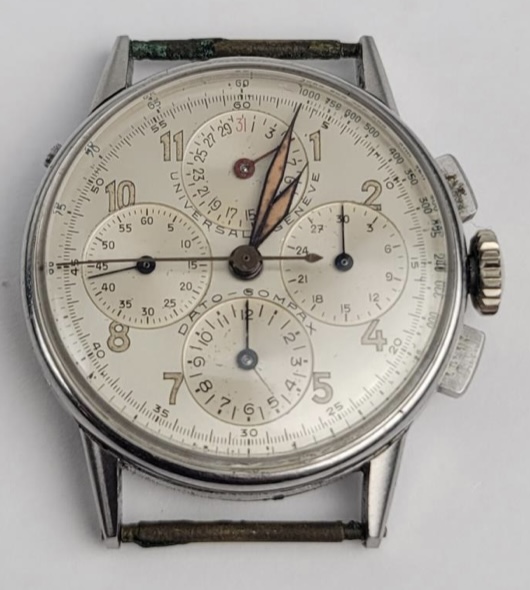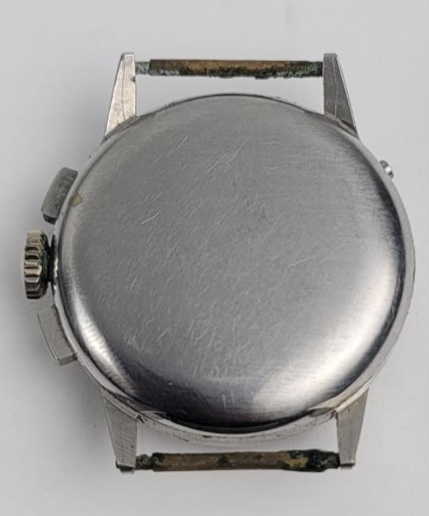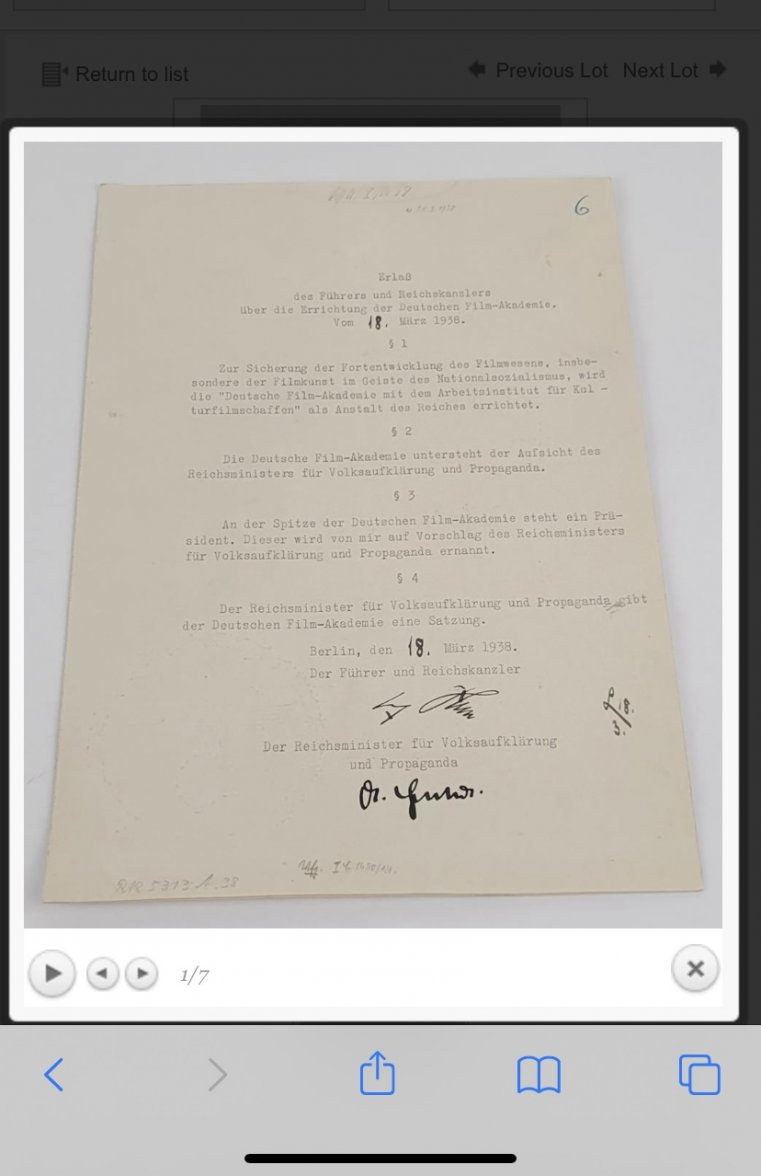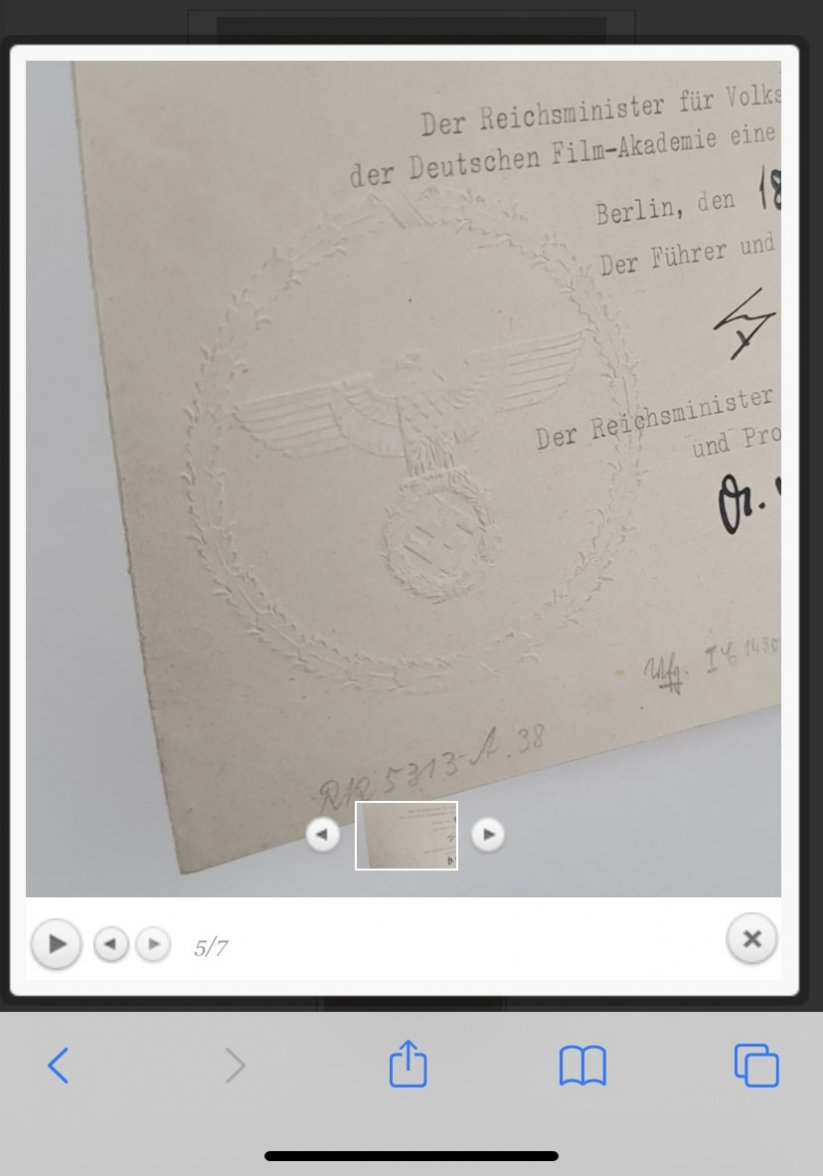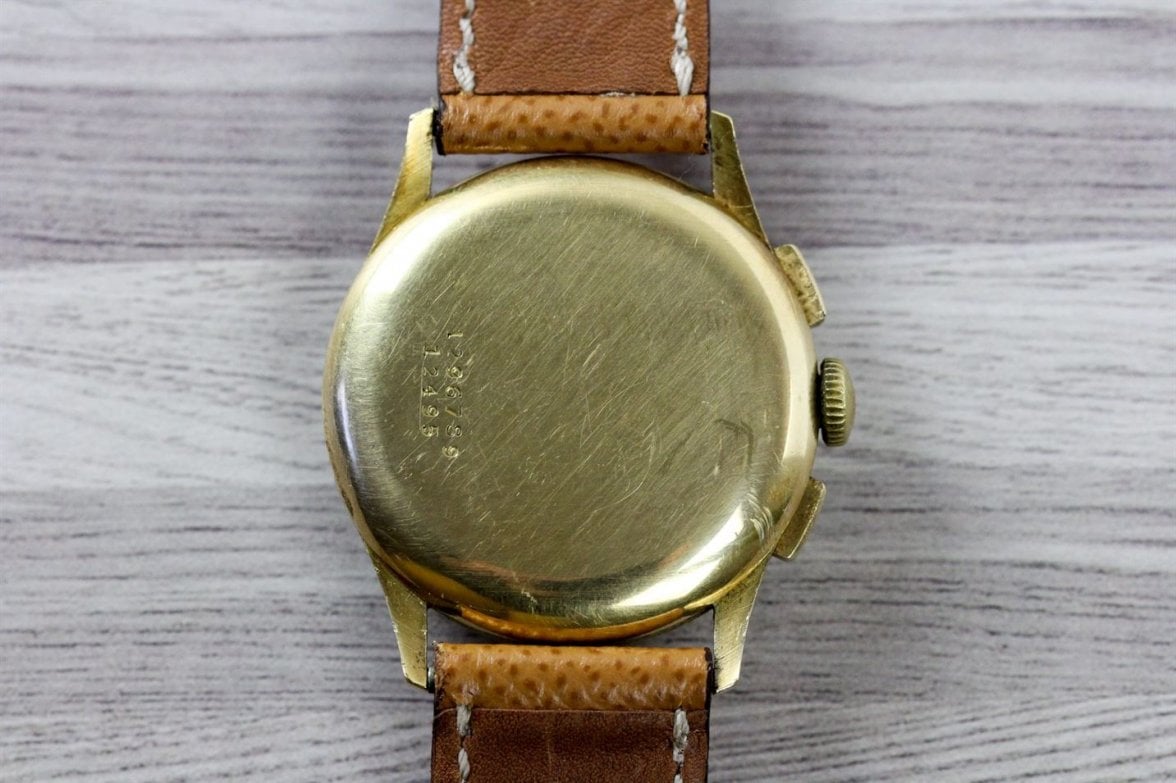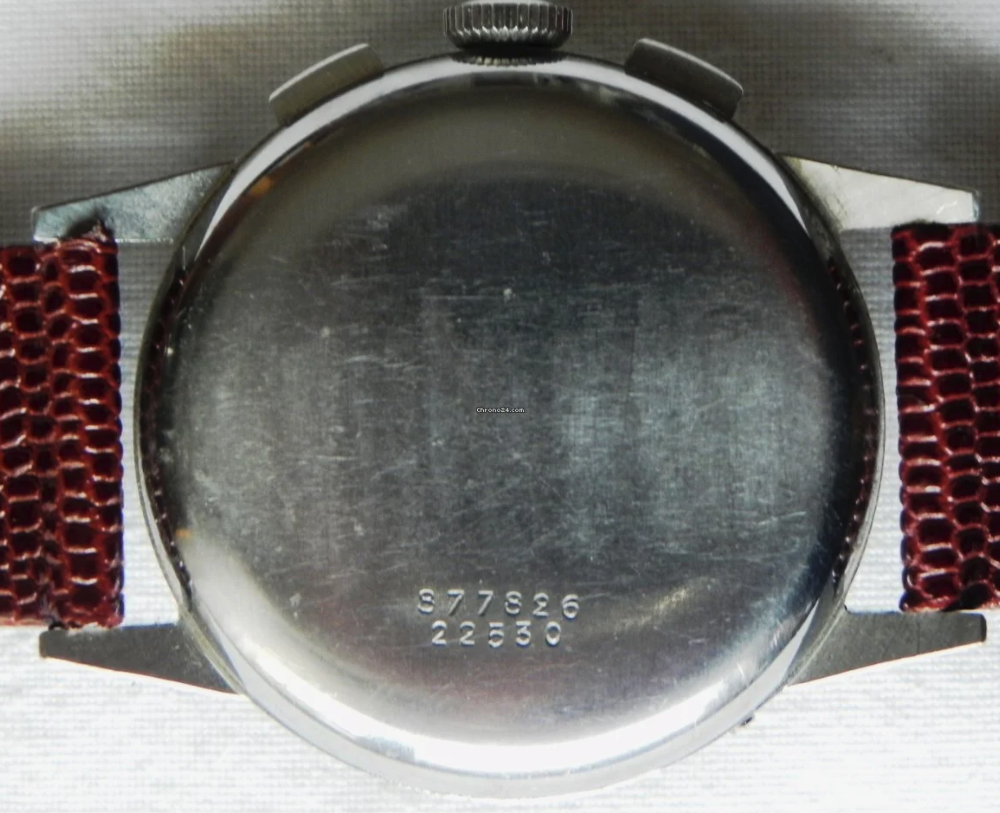Universal Geneve Oversized Dato-Compax
Mlafra
·1st and 4th are the same watch....and it is mine eheh 😉
I originally bought it with h and m hands as the 1st (that were wrong) and I was later able to source the correct stick gilt hands for it (indices are gilt) through the same dealer who got it from the previous owner who substituted them years ago because he likes them better that way (go figure) but thankfully he kept the original ones! I was lucky
I originally bought it with h and m hands as the 1st (that were wrong) and I was later able to source the correct stick gilt hands for it (indices are gilt) through the same dealer who got it from the previous owner who substituted them years ago because he likes them better that way (go figure) but thankfully he kept the original ones! I was lucky
slique12
·really cool watch. i like the patina on the dial. would you opt to preserve it in this state?
slique12
·1st and 4th are the same watch....and it is mine eheh 😉
I originally bought it with h and m hands as the 1st (that were wrong) and I was later able to source the correct stick gilt hands for it (indices are gilt) through the same dealer who got it from the previous owner who substituted them years ago because he likes them better that way (go figure) but thankfully he kept the original ones! I was lucky
Mlafra
·I have seen maybe 4 or 5 big case examples in total, all in steel.
Gold ones tends to be smaller but there are also smaller steel cases.
Not too sure if they were all from 1941/42, hard to prove I guess.
Gold ones tends to be smaller but there are also smaller steel cases.
Not too sure if they were all from 1941/42, hard to prove I guess.
slique12
·I have seen maybe 4 or 5 big case examples in total, all in steel.
Gold ones tends to be smaller but there are also smaller steel cases.
Not too sure if they were all from 1941/42, hard to prove I guess.
Edited:
slique12
·Thanks to @martinc for discovering this Dato which disproves my hypothesis above that the oversize Dato ref 22530 was only produced during the launch year of the model.
https://www.easyliveauction.com/cat...fine-jewellery-silver-watches-clocks-lot-355/
https://www.easyliveauction.com/cat...fine-jewellery-silver-watches-clocks-lot-355/
Larry S
··Color Commentator for the Hyperbole.What a mess!
southtexas
·Wish I’d found this thread sooner! I lost in an online/on-site auction today for this oversize example. In case someone here bought it, I’ll save the backstory for him. Needless to say, it has some of the coolest provenance I’ve ever heard of.
I initially assumed it was a redial, and factored my price accordingly (while also putting a premium on the documented history of it, and wow was I off the mark). What are your thoughts?
I initially assumed it was a redial, and factored my price accordingly (while also putting a premium on the documented history of it, and wow was I off the mark). What are your thoughts?
Mark020
··not the sharpest pencil in the ΩF drawerIn case someone here bought it, I’ll save the backstory for him.
Backstory:
This watch is about as historic and significant as you can get for a WW2 Chronograph. It was on Mayhew Y. "Bo" Foster's wrist while he flew Hermann Göring to stand trial at Nuremberg. This watched helped Bo keep track of mileage and fuel usage and was essential in accomplishing his mission. Thanks to this watch Hermann Goring landed safety in Nuremberg and stood trial for the atrocities he committed during the Holocaust. The watch is in working order. Mayhew Y. "Bo" Foster (October 9, 1911 - March 21, 2011) was an American soldier who flew captured Nazi war criminal Hermann Göring from Austria to Germany for interrogation by the 7th Army. For his actions in World War II, Foster was awarded both the Silver Star and the Légion d'Honneur. At the end of the war, Göring surrendered to the Allied Powers in the Bavarian Alps. On May 9, 1945, Foster transported Göring back to Germany on a 55-minute flight in an unescorted, unarmed L-5, a larger plane than the L-4 he normally piloted, because Göring weighed more than 300 pounds (140 kg). According to China Daily, in a letter to his wife, Virginia, written at the time, Foster describes his first impression of Göring as "effeminate [and] gave me the creeps . . . Several times I had the impulse to turn the plane over and see if I could shake him out, but he was wedged in like a champagne cork." Foster said that Göring, who spoke some English, avoided any talk of Adolf Hitler, with whom Göring - as the commander of the Luftwaffe - had fallen out of favour as the total German defeat neared. "He acted as though he was going on a sightseeing tour, or really as though I was going on a sightseeing tour, and he was showing me where he grew up. I had a .45 in a shoulder holster, but he couldn't reach that. But neither could I, because I had two hands controlling the plane." Foster further recalled Göring as having been sharp, friendly, and witty, having joked when Foster asked him when Germany began manufacturing jets. "Too late," Göring was said to have answered. Foster continued: "I could see that he was like one of our officers if he'd been picked up. I wouldn't say it changed my view of the war, but it showed me that there are [He did not finish the statement.] . . . Well, I questioned all that we knew about these vicious people." Göring was convicted of war crimes, but in October 1946 before he could be hanged by the Nuremberg authorities, he committed suicide by taking a cyanide capsule someone had smuggled to him. By October 1945, Foster was back in the United States, having flown seventy reconnaissance combat missions during his wartime service. He returned to his adopted home state of Montana, where he was appointed lieutenant colonel in the Montana Army National Guard. He was thereafter promoted to brigadier general, a rank that he held from 1963 until 1971. A native of Richmond, Virginia, Foster graduated in 1937 with a degree in English from Yale University in New Haven, Connecticut. He and his wife, Virginia Lou Foster (February 15, 1916 - May 7, 1993) were married in 1940. The couple had one daughter, Susan Carol Foster Korkalo (1944–2007). Foster received the Silver Star for his wartime service in southern France in 1944. It was not until 2009 that he received the French Legion of Honor, when Pierre Vimont, the French Ambassador to the United States, released a letter hailing Foster for his "personal, precious contribution to the United States' decisive role in the liberation of our country during World War II." Foster died at the age of ninety-nine in a nursing home in Missoula, Montana. His last city of residence was Livingston in Park County, Montana. Survivors included son-in-law Roy E. Korkalo of Livingston, grandson Chris Korkalo, and a sister, Priscilla F. Howell.
bgrisso
·Wish I’d found this thread sooner! I lost in an online/on-site auction today for this oversize example. In case someone here bought it, I’ll save the backstory for him. Needless to say, it has some of the coolest provenance I’ve ever heard of.
I initially assumed it was a redial, and factored my price accordingly (while also putting a premium on the documented history of it, and wow was I off the mark). What are your thoughts?
the dial looks good, what concerns did you have ?
southtexas
·the dial looks good, what concerns did you have ?
I was concerned about the dial- the (seemingly) original examples I uncovered on the ‘net didn’t have such large DATO-COMPAX font between the subdials. In addition, the fonts were just wonky/messy enough to lead me to believe it was a redial.
I’m a big history buff and really wanted that watch, but I couldn’t justify it.
As an aside, the auction also contained a 1938 document/decree creating a German film academy. It was signed by Hitler and Goebbels (not sure if they were stamped signatures or actual signatures, but a very interesting piece of history nonetheless).
rolokr
·Dial is perfect ! That is very rare., especially in that condition.
spe777
·Wow. That is gorgeous.
